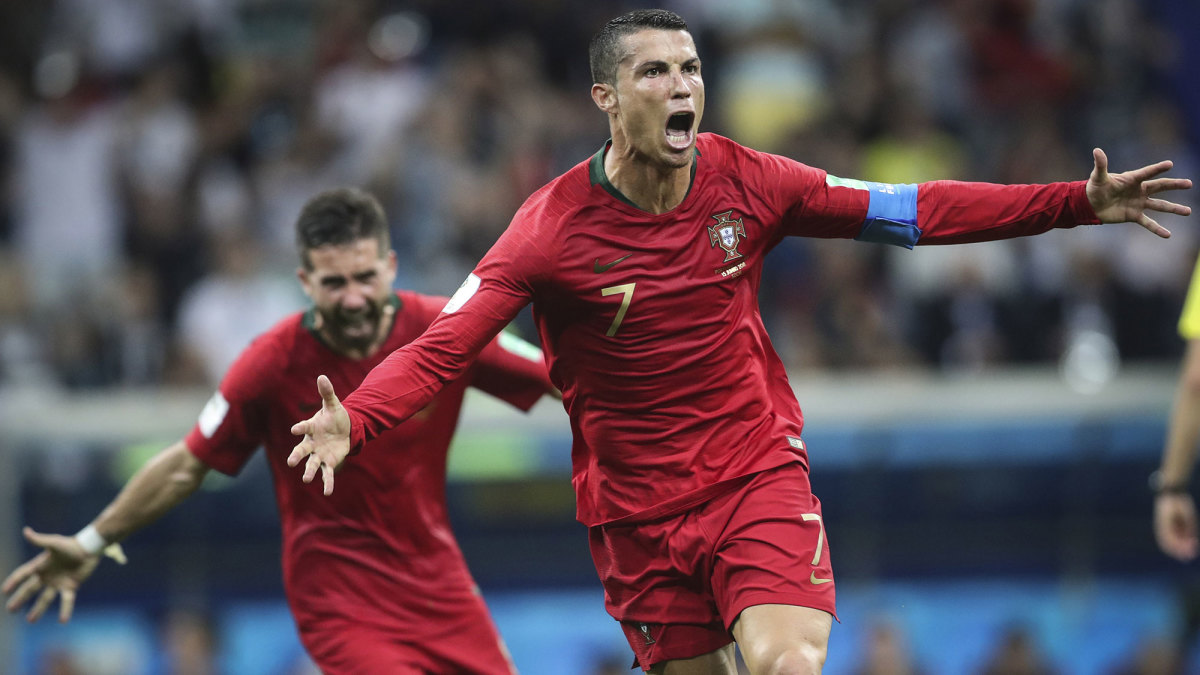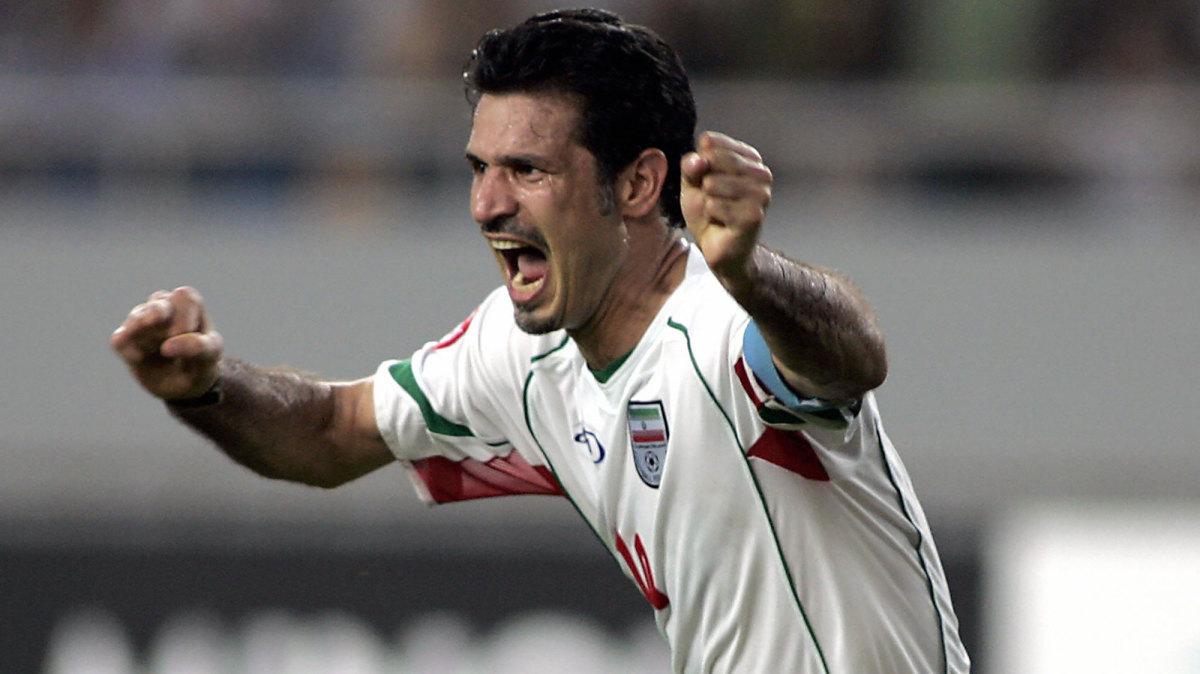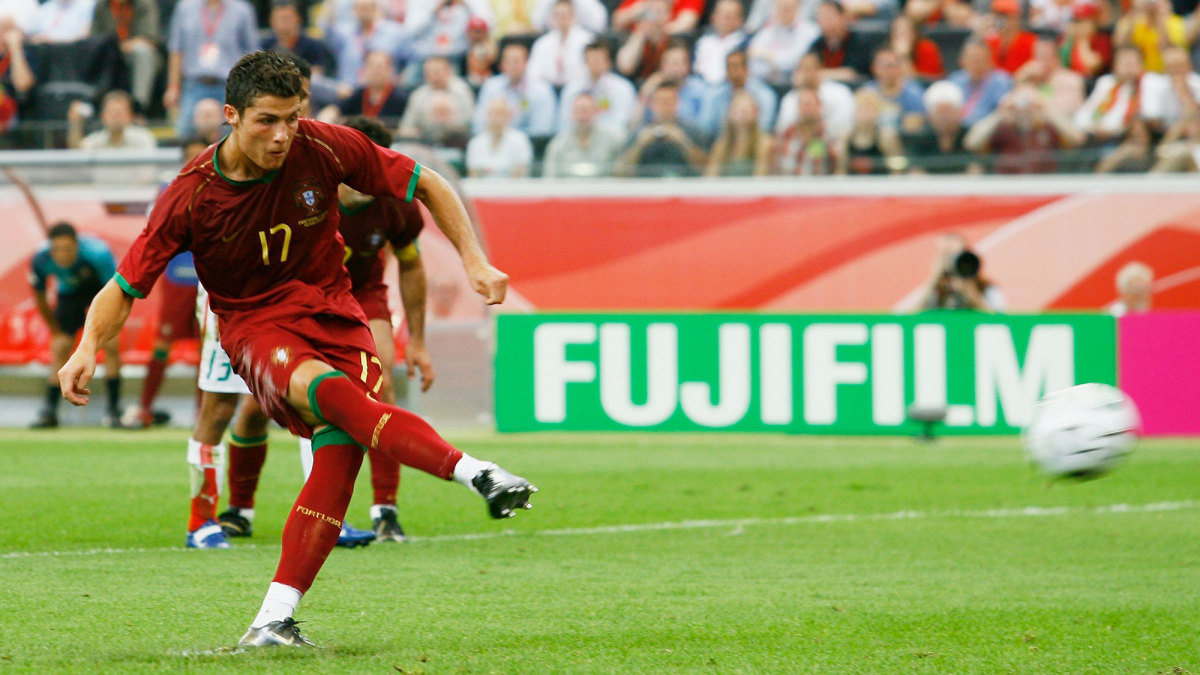Cristiano Ronaldo, Ali Daei and Why International Goals Don't Tell the Full Story
For Cristiano Ronaldo, football has become all about records. He will not win the Champions League this season, and even the Serie A title is looking like a stretch, but at least he’ll have various all-time goals records. This month, Ronaldo surpassed Pelé’s mark for most goals in official games, and he is within seven of Iran striker Ali Daei’s men's international scoring record of 109 goals.
Goal-scoring records are always slightly spurious. Pelé, at least, seems to have accepted that Ronaldo has now surpassed him in official games, but such things are always at least to an extent arbitrary. Across eras, across countries, what should count is never entirely clear. A lot of Pelé’s greatest performances came on extremely testing tours of Europe with Santos, but those games are classified as friendlies and so don’t register. But then which friendlies do you begin to consider? The case of Josef Bican, who has scored more goals than Ronaldo, although not necessarily in official games, is even more complex.
International goals are a little easier to assess, given everybody seems to accept that goals scored in tournaments, in qualifiers and in friendlies should all be tallied. But, of course, some players play a lot more than others, partly because some countries play more games than others, and partly because a good player in a weaker footballing country would tend to have a longer career than a player of similar ability playing for a nation that produces large numbers of elite players.

Nobody doubts that Pelé and Bican were greats of the game, but with international goals the picture is much less clear-cut. The list of those who have scored more than 50 international goals is eclectic. It comprises only 61 names—the great Diego Maradona is not among them—and of those, only three have scored at a clip of more than a goal a game, led by Poul Nielsen, who scored 52 goals in 38 matches (1.37 goals per game) for Denmark between 1910 and 1925.
Admittedly he is only tied for 51st on the list, level with Jon Dahl Tomasson (Denmark), Javier Hernández (Mexico), Phil Younghusband (Philippines) and Adnan Al Talyani (United Arab Emirates). But the odd mix of players carries on to the top of the chart. Although Pelé is seventh, Ferenc Puskás fourth and Ronaldo second, sixth is Hussain Saeed (Iraq), fifth is Godfrey Chitalu (Zambia) and third is Mokhtar Dahari (Malaysia).
Chitalu, at least, is recognized in Africa as an all-time great. He was part of the Zambia side that finished second in African qualifying for the 1974 World Cup (when only one team, Zaire, made it to West Germany) and scored a record 116 goals for Kabwe Warriors and his country in 1972. He had just taken over as coach of Zambia when he and the majority of the squad were killed in a plane crash near Libreville, Gabon, in 1993.
So what of Ali Daei? He was born in Ardabil in northwestern Iran in March 1969. He trained with his local club, Estreghal Ardabil, and made his debut when he was 19. At 6' 4" and with an eye for goal, he soon attracted the attention of the big Tehran clubs. He went to Taxirani and then Bank Tejerat, where he stayed for four seasons, scoring 49 goals in 75 appearances.
But it wasn’t just his goals that caught the eye. As he put on muscle in his early 20s, Daei became an extremely accomplished target man, capable of holding the ball up, and in 1994 that earned him a move to Persepolis, one of the two most successful clubs in Iranian history. His first international call-up had come against Pakistan the previous year. He settled quickly at Persepolis, continuing to score at a rate of roughly two goals in every three games, and after two seasons there moved on to Al-Sadd in Qatar.
Having effectively missed a year as he performed his compulsory military service, 1996 was also Daei’s real breakthrough year on the national side, as he scored 22 goals in 18 games, including four in the final 25 minutes of the AFC Asian Cup quarterfinals, as Iran twice came from behind to beat South Korea, 6–2. But he missed his penalty in the shootout against Saudi Arabia after a 0–0 draw in the semifinals, and being the tournament's top scorer was of limited consolation for Iran's frustrating third-place finish in the tournament. Still, even allowing for the quality of some of the opposition (four against Nepal and five against Sri Lanka in Asian Cup qualifying), 22 goals was an extraordinary tally given the previous all-time leading scorer for Iran, Gholam Hossein Mazloumi, had managed only 19 international goals in his entire career.

Yet there followed a period of several months in which Daei was omitted from the national side after falling out with coach Mohammad Mayeli Kohan. Mayeli Kohan ended up being jailed in 2014, after which Daei successfully sued him for defamation. Of more immediate concern was his dismissal from the national job in 1997, which allowed Daei to return to the squad.
As the goals continued, Daei caught the eye of European clubs, and in 1997 he moved to the Bundesliga with Arminia Bielefeld, along with his Iran international teammate Karim Bagheri. Goals were harder to come by in Germany, but Daei still impressed enough in his first season to earn a move to Bayern Munich. There, he became the first Asian to play in the Champions League, but with regular international call-ups taking him away (in the days before the calendar was rationalized), Daei found himself struggling for pitch time as Bayern, with Giovane Elber and Carsten Jancker as the first-choice front two, won the Bundesliga. Daei moved after a year to Hertha Berlin.
The oddity is that, by then, Daei was far from prolific in club football, where his aerial ability and link-up play became far more valuable. There were famous goals–two for Hertha as it beat Chelsea in a Champions League group game in 1999, another at the San Siro as Hertha drew away to AC Milan–but 107 league games over five seasons in Germany yielded only 19 goals.
At the international level, though, he couldn’t stop scoring: nine in qualifying for the 1998 World Cup—although Bagheri got 19, helped by seven in a single game against the Maldives, when Daei helped himself to just two. Daei didn’t score at the World Cup in France, but he did provide the assist for Mehdi Mahdavikia as Iran beat the USA in the group stage. (Two years later, I sat with the pair in a hotel lobby in Beirut as we tried to decipher German media reports that Mahdavikia was facing sanction from his club, Hamburg, for going to play at the 2000 Asian Cup; it was a brief interaction, but in as far as you can tell from a quarter of an hour of confused conversation in three languages, he seemed calm, sensible and solicitous for his teammate).
There was another 20-goal international year in 2000, and 17 in 2004. He returned to Asia with the UAE club Al Shabab in 2002 before going back to Persepolis a year later. By then he was 34, and approaching Puskás’s record of 84 international goals. It looked like he had surpassed it in November 2003 when he scored against North Korea in an Asian Cup qualifier at the Azadi Stadium in Tehran, but in the celebrations, a firecracker was thrown from the stand, striking an opposition player. The game was annulled, and so he was forced to break the record for a second time, converting a penalty away to Lebanon a week later.
Goal No. 100 came as one of four in a 7–0 win over Laos in qualifying for the 2006 World Cup, but by the time it came to the tournament in Germany, Daei’s age was catching up with him. He was clearly not the player he had been, and, after an ineffective display in a defeat to Mexico, he was left on the bench for a defeat to Portugal, in which Ronaldo converted the penalty that effectively ended Daei's international career (Daei's final cap came in Iran's group finale vs. Angola). That was Ronaldo's 12th international goal. Some 15 years later, their paths are set to cross again.

Since that World Cup, Daei’s career has been notably erratic. He was banned for four games in 2007 after headbutting an opponent, and he has never really enjoyed success as a manager, although he did have a brief stint in charge of the national side. The oddest incident came in 2019 when, after being sacked by Saipa, he accused the club’s CEO, Mostafa Modaber, of actually being Ghafour Darjazi, a former army commander accused of having orchestrated the assassination of Abdul Rahman Ghassemlou, the secretary general of the Democratic Party of Iranian Kurdistan, in 1989.
But at least for now, Daei remains the leading all-time international goal-scorer in men's football. There is, of course, a dispute with his total, with Daei claiming two goals against Afghanistan at the 2002 Asian games that FIFA refuses to count on the grounds that was a tournament for Under-23 squads bolstered by a handful of overage players.
Does it matter? Perhaps not. Only 13 of his 109 goals came against non-Asian opposition. Racking up the numbers against the likes of Nepal, Sri Lanka and Guam—or indeed Lithuania, the Faroe Islands and Andorra, against all of whom Ronaldo has scored hat-tricks—means little. Others have been stymied, curtailed by off-field events. Puskás never scored an international goal after the age of 29, when his international career ended by his defection following the 1956 Hungarian uprising,
Scoring goals is only one mark of greatness. Nobody, surely, actually thinks Dahari is a better player than Lionel Messi, even if he has scored 18 more international goals. And even when that is taken into account, there is a large degree of contingency about such lists. Perhaps the most telling aspect is Ronaldo’s determination to take the record, his obsession with individual records, his hunger for self-improvement.
And, of course, to achieve the required longevity is in itself a great accomplishment. It’s just not one that really matters. People knew Ali Daei because of the record; Cristiano Ronaldo’s legend is secure already.
